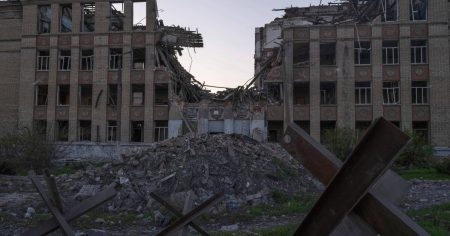New York’s Leadership Crisis: A Detailed Overview
1. Governor Hochul Considers Unprecedented Action
In an extraordinary move, New York Governor Kathy Hochul is contemplating the removal of New York City Mayor Eric Adams from office. This decision, which has never been taken in the state’s 235-year history, highlights the gravity of the situation. Hochul has announced a meeting to discuss Adams’ future, emphasizing her constitutional authority while expressing reluctance to overturn the public’s will. Her primary concern is ensuring stability for NYC’s 8.3 million residents, signaling a cautious yet firm approach to the crisis.
2. Trump Administration’s Role and Resignations
The roots of the crisis lie in the Trump administration’s intervention, where federal prosecutors were asked to drop a corruption case against Adams. This quid pro quo arrangement, critics argue, aimed to free Adams to support Trump’s immigration agenda and campaign. The fallout has been significant, with four deputy mayors resigning, citing unprecedented events and a commitment to their oath. Their departure underscores a loss of confidence in Adams’ leadership and raises questions about City Hall’s functionality.
3. Hochul’s Focus on Constituents and Governance
Governor Hochul has reiterated her commitment to the well-being of New York City residents, promising close monitoring of the situation. The resignations of high-ranking officials, who were key partners in state initiatives, have deepened concerns about governance. Hochul’s emphasis on stability reflects her focus on maintaining effective administration amidst turmoil, ensuring that city services remain unaffected by the political storm.
4. Legal Implications and Prosecutor’s Resignation
The legal landscape became more contentious with the resignation of Danielle Sassoon, interim U.S. attorney, who criticized the order to drop the case against Adams. She revealed that prosecutors were prepared to pursue new charges, including evidence tampering and fraud. Sassoon’s stance and her confidence in the evidence highlight the seriousness of the allegations, drawing attention to potential violations of federal law and ethical standards.
5. Political Pressure and Calls for Resignation
As the crisis deepens, Democratic leaders, including Alexandria Ocasio-Cortez and Lt. Gov. Antonio Delgado, have joined calls for Adams’ resignation. City Council Speaker Adrienne Adams echoed these sentiments, noting the erosion of trust among staff and constituents. The indictment against Adams for illegal campaign contributions and bribes adds legal weight to these demands, complicating his ability to lead effectively.
6. Adams’ Defense and Controversial Remarks
Mayor Adams has vigorously denied the allegations, drawing criticism for invoking a controversial quote from Hitler’s Mein Kampf, which he attributed to Martin Luther King Jr. This misstep has fueled accusations of desperation and poor judgment. Adams defends his record, particularly on the migrant crisis, but the controversy surrounding him has deepened the political divide, emphasizing the need for clarity and accountability in leadership.
This evolving situation highlights the complex interplay of politics, law, and governance, with significant implications for New York City’s future. As the developments unfold, the focus remains on ensuring stability and accountability, crucial for the city’s constituents.









